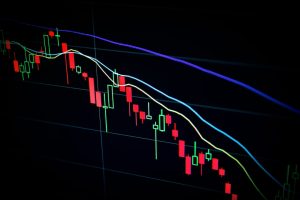Forex brokers play a crucial role in the foreign exchange market. They are responsible for connecting traders with the interbank market, which is where the vast majority of forex trading takes place. Brokers facilitate transactions between buyers and sellers, and they earn their revenue through commissions and spreads. However, brokers also have a significant impact on the forex markets through their trading activities and market-making functions. In this article, we will explore the ways in which brokers move the forex markets and what factors influence their actions.
Market-Making and Liquidity Provision
One of the primary functions of forex brokers is to act as market makers. This means that they provide liquidity to the market by buying and selling currencies at their quoted prices. Brokers typically have access to deep pools of liquidity from multiple sources, including banks, financial institutions, and other market participants. They use this liquidity to offer their clients competitive bid-ask spreads, which represent the cost of trading.
By providing liquidity to the market, brokers help to ensure that there are always buyers and sellers available for traders to transact with. This is particularly important in the forex market, which has a decentralized structure and operates 24/7. The presence of brokers ensures that the market remains efficient, transparent, and accessible to traders of all sizes.
Market-making also involves managing risk. Brokers must constantly monitor their exposure to different currencies and adjust their positions accordingly. They use a range of risk-management tools, such as stop-loss orders, to limit their losses in volatile market conditions. Brokers also use hedging strategies to offset their exposure to currency fluctuations.
Impact on Currency Prices
Brokers can have a significant impact on currency prices through their market-making activities. When brokers buy or sell a currency, they can influence its supply and demand dynamics. For example, if a broker buys a large amount of a particular currency, it can increase its value by creating more demand for it. Conversely, if a broker sells a large amount of a currency, it can decrease its value by increasing the supply.
The impact of brokers on currency prices is most significant in the short term. This is because their trading activities are driven by market conditions and client demand, which can change rapidly. However, over the long term, the impact of brokers on currency prices is more muted, as fundamental factors such as economic growth, inflation, and political stability become more important.
Broker Trading Strategies
Forex brokers also engage in their own trading activities, which can impact currency prices. Brokers use a range of trading strategies, including technical analysis, fundamental analysis, and algorithmic trading. They may also engage in proprietary trading, where they use their own capital to make trades.
Technical analysis involves using charts and other technical indicators to identify trends and patterns in currency prices. Brokers may use this approach to make short-term trades based on technical signals. Fundamental analysis, on the other hand, involves analyzing economic data, geopolitical events, and other factors that can impact currency prices. Brokers may use this approach to make longer-term trades based on fundamental factors.
Algorithmic trading involves using computer programs to execute trades automatically based on predefined rules. Brokers may use this approach to make trades quickly and efficiently, without the need for human intervention. Proprietary trading involves using a broker’s own capital to make trades. This approach can be risky, but it can also be highly profitable if done correctly.
Conclusion
Forex brokers play a critical role in the foreign exchange market by providing liquidity and facilitating transactions between buyers and sellers. They also have a significant impact on currency prices through their market-making activities and trading strategies. Brokers must constantly monitor market conditions and adjust their positions to manage risk and maximize profits. While their impact on currency prices is most significant in the short term, brokers play a crucial role in ensuring that the forex market remains efficient, transparent, and accessible to all traders.





